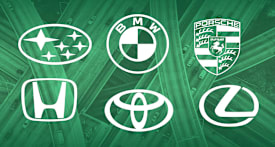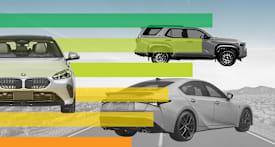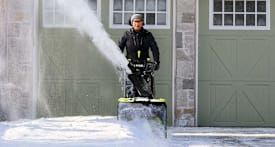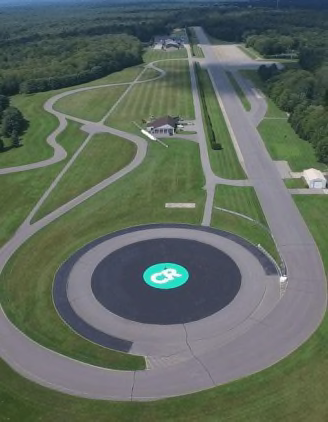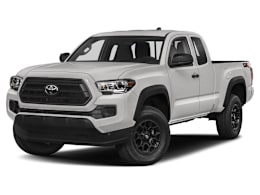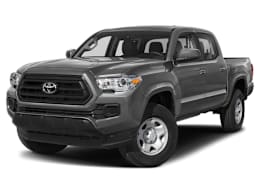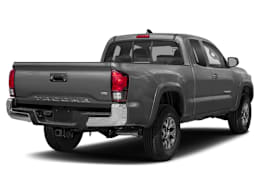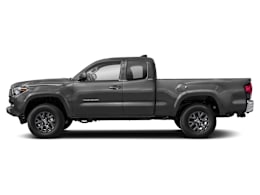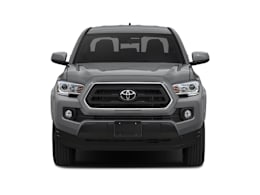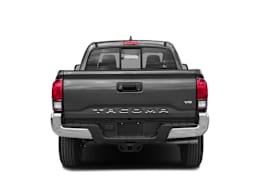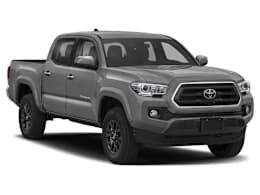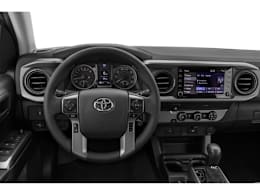While full-sized pickup trucks increasingly adopt luxury trappings, most compact trucks remain utilitarian workhorses. The Tacoma is a down-and-dirty example of function trumping form.
The Tacoma is the perfect truck for landscapers and contractors. This beast of burden has a tough-as-nails chassis and a durable composite plastic bed. For off-roading adventures, the capable Tacoma has few peers.
And though the price nears that of discounted full-sized trucks, the compact Tacoma tenaciously holds its value. Hence, the Tacoma's cult following.
But make no mistake, the Tacoma drives like a primitive, agricultural-era relic.
For all of Toyota's claims that the 2016 redesign brought an all-new truck, key features seem as though Toyota slept through the past decade's advances in truck technology and interior design.
Today's modern full-sized trucks feature a quiet cabin, a semblance of handling responsiveness, and a tolerable ride. But the compact Tacoma has none of that.
Unlike other V6-powered Toyota models, our tested Tacoma never felt quick from a standing start or when passing -- despite the robust acceleration figures as measured on our track. Fuel economy with the six-speed automatic transmission is 19 mpg overall on regular gas, quite good for a truck and a clear improvement over its predecessor.
Out on the road, the Tacoma's handling is ponderous, and its slow and numb steering never connects the driver to the front wheels. Clearly clumsy around corners, it never felt unsafe.
The chassis's propensity to jiggle and shudder delivers a Metallica snare-drum beat to your spine. Wind and engine noise drowned out any chance of conversation when we tested our last Tacoma. Fortunately, thicker glass for 2020 improves noise isolation.
Inside, it still has a too-high step-in, a too-low driver's seat, and a ceiling that scrapes scalps of those entering the cabin. A newly introduced optional power driver's seat improves matters some and adds a two-way lumbar support adjustment.
The rear seat in our crew cab had hard padding, cramped leg and foot room, and short cushions -- although it flips up to reveal useful storage bins. Outward visibility is decent, but the narrow, shallow windows make it less commanding.
Controls are basic and easy to read -- essential when reaching for some of the faraway knobs and buttons. Newly introduces Android Auto and Apple CarPlay are pluses.
True to its heritage as a work truck, the Tacoma admirably trundled up our rock hill with ease. The damped tailgate is a charm to lower but a chore to raise. And though it varies based on the body and powertrain, our truck is rated to tow 6,400 pounds -- that's a 23-foot Airstream trailer, folks.
All models get the Toyota Safety Sense P (TSS-P) as standard equipment, which includes forward collision warning with automatic braking and pedestrian detection, lane departure warning, and adaptive cruise control.
By contrast, the competing Chevrolet Colorado is more modern-feeling, and the Honda Ridgeline has clever features and drives much more like a car. Sure, you can try to dress up a Tacoma by outfitting it with leather trim, a premium stereo, and a moonroof. But for that price you can get a full-sized pickup with increased hauling capabilities, a roomier cabin, and a more comfortable ride.
